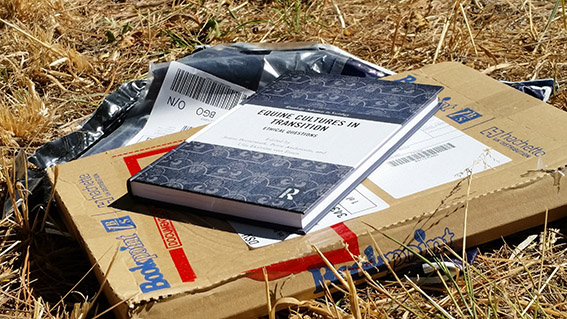Abstract: He Loves to Race – or Does He? Ethics and Welfare in Racing
Posted on April 29th, 2019

So wonderful to receive this book with my chapter in the mail!
Abstract: This chapter explores how representatives of the thoroughbred racing industry conceptualise thoroughbred welfare, what their ethical underpinnings are, how this contrasts with welfare conceptions expressed by thoroughbred protection advocates and what this means for thoroughbred welfare. The research presented here is part of a larger study that investigates the future for horses in thoroughbred racing and the sustainability of welfare concepts. Nine industry representatives from the US and Australia, and seven representatives of thoroughbred advocacy organisations from the US, Australia and Great Britain, have been interviewed. Industry informants characterise welfare mainly in terms of basic health and functioning. The welfare dimensions of thoroughbred agency, integrity and telos are largely ignored. Three main groups of welfare issues emerge: the use and potential overuse of drugs and medication; injuries and death on the racetrack; and the aftercare of thoroughbreds exiting the industry. It appears the industry pursues three objectives with their welfare initiatives: to address only the most egregious welfare violations of industry practices on and off the track; to influence the public’s perception of the industry and its treatment of the thoroughbred; and to focus on productivity, efficiency and optimisation of the commodifiable characteristics of the thoroughbred. It is not likely that this will result in net gains for thoroughbred welfare.
(Abstract for indexing purposes, not included in published version.)
Bergmann, Iris. 2019. “He Loves to Race – or Does He? Ethics and Welfare in Racing.” In Equine Cultures in Transition: Ethical Questions, 1st edition, edited by Jonna Bornemark, Petra Andersson and Ulla Ekström von Essen. Routledge Advances in Sociology. Milton Park, Abingdon, Oxon; New York, NY: Routledge, 117-133.
DOI: 10.4324/9781351002479-9 Pre-proof
Last edited 25.10.2019
